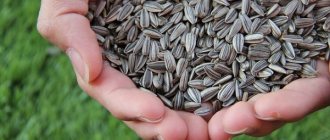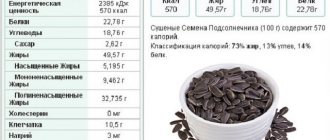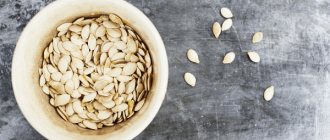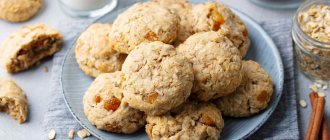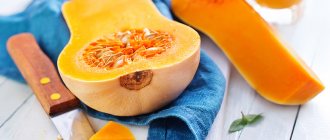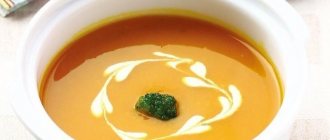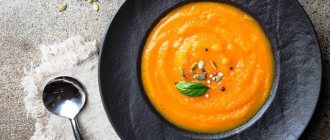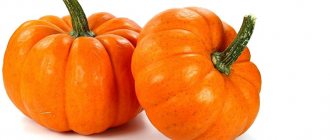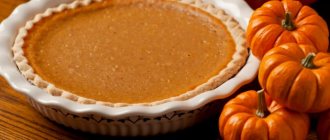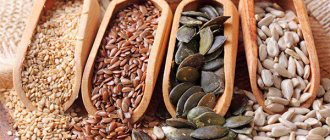Most people have a negative attitude towards shelling sunflower seeds. This activity is considered a waste of time, but in vain. Sunflower seeds contain a lot of nutrients that are beneficial for the human body. Valuable fats, essential plant components, minerals - all this is contained in the seeds. Sunflower seeds contain a very high concentration of vitamin E and selenium.
Up to two thousand seeds ripen in one sunflower basket [1].
Composition and calorie content
Calories 578 Kcal
- Fat:
51.46 g - Proteins:
20.78 g - Carbohydrates:
20.0 g - Water:
4.73 g - Ash:
3.02 g - Fiber:
11.1 g
| Vitamins | Quantity | % RDN |
| Vitamin B7 (biotin) | 670 mcg | 1340% |
| Vitamin E (alpha tocopherol) | 33.20-35.17 mg | 228% |
| Vitamin B1 (thiamine) | 1.48-2.10 mg | 105% |
| Vitamin B9 (folic acid) | 227 mcg | 57% |
| Vitamin B6 (pyridoxine) | 0.80-1.35 mg | 53% |
| Vitamin B3 (PP, niacin) | 6.80-8.33 mg | 38% |
| Vitamin B5 (pantothenic acid) | 1.13-2.20 mg | 33% |
| Vitamin B2 (riboflavin) | 0.24-0.36 mg | 15% |
| Vitamin B4 (choline) | 55.1 mg | 11% |
| Minerals (per 100 g): | Quantity | %RDN |
| * Cadmium | 9.1-21 mcg | 420% |
| Nickel | 144-597 mcg | 247% |
| Vanadium | 84.1 mcg | 210% |
| Copper | 1752-1800 mcg | 178% |
| Bor | 113.5 mcg | 162% |
| Manganese | 1950 mcg | 97% |
| Phosphorus | 660-705 mg | 85% |
| Magnesium | 317-354 mg | 84% |
| Selenium | 53-56 mcg | 83% |
| Cobalt | 5.3 mcg | 53% |
| Zinc | 5000 mcg | 42% |
| Iron | 5.3-6.1 mg | 38% |
| Molybdenum | 19.5 mcg | 28% |
| Silicon | 8.0 mg | 27% |
| Rubidium | 26 mcg | 26% |
| Potassium | 645 mg | 26% |
| Zirconium | 11.2 mcg | 22% |
| Calcium | 78-367 mg | 20% |
| Sulfur | 180.8 mg | 18% |
Full chemical composition ➤
Other important connections:
- Phytosterols
- 534 mg (971% of the RDA). The main part is beta-sitosterol (151.3%).
- Purines
— 65 mg (52.3% of RDA)
- Oxalic acid
— 18.9 mg (4.7% of RDA)
Fried or raw - which is healthier?
“It is not recommended to process the seeds by roasting, as they contain vegetable oil, unsaturated fatty acids, trace elements, vitamin E. Fatty acids found in sunflower seeds quickly enter into an oxidative reaction. Exposure to high temperatures leads to the formation of carcinogenic compounds that negatively affect healthy cells of the human body.” - says nutritionist Elena Solomatina.
In roasted seeds, in comparison with raw ones, the loss of most useful components is recorded. They only become a source of empty calories.
It is important to properly store raw sunflower seeds. If certain conditions are not met, larvae may appear in them.
Sprouted sunflower seeds occupy a special place in dietetics. When germinated, the concentration of nutrients in them increases significantly. Mechanisms occurring inside the seed help reduce factors that negatively affect the absorption of minerals. For example, phytic acid is destroyed [2].
The benefits and harms of seeds for the body
Despite the fact that the seeds make you fat, they bring benefits to the body:
- reduce stress levels;
- contain large amounts of fat-soluble vitamins A, D, E and B vitamins, which normalize the functioning of the nervous system;
- contain polyunsaturated fatty acids that protect blood vessels from the formation of atherosclerotic plaques.
Speaking about the dangers of seeds, in addition to their high calorie content, it is worth noting the consequences of opening the seed shell with teeth. This wears down the enamel, leads to its thinning and darkening, and contributes to the development of caries.
Sunflower, pumpkin, and flax seeds are undoubtedly healthy foods, but to get a slim figure, it is recommended to limit their quantity.
The benefits of sunflower seeds
The high content of vitamin E, magnesium, linoleic fatty acids and protein explains the benefits of sunflower seeds and a number of its beneficial properties:
- Reduce blood pressure.
- Reduce cholesterol levels.
- Lower blood sugar levels.
Relieves inflammation.
Short-term inflammation is the body’s physiological response to the influence of a pathological agent. This is a normal immune reaction. However, symptoms of chronic inflammation indicate the development of chronic diseases.
One study on sunflower seeds involved 6,000 people. Those participants who ate sunflower seeds at least five times a week had a 32% decrease in C-reactive protein levels compared to those who did not eat them. High levels of C-reactive protein are a marker of inflammatory processes associated with a high risk of cardiovascular disorders and the development of type II diabetes [3].
Lower blood pressure
. Sunflower seeds contain specific enzymes that narrow the lumen of blood vessels. Their action causes a decrease in the tone of the vascular wall and, as a result, a decrease in blood pressure. An additional factor that contributes to this process is the presence of magnesium.
Linoleic acid, which is concentrated in large quantities in sunflower kernels, helps lower blood pressure. With its help, the body synthesizes substances similar in composition to hormones. They relax the lining of large blood vessels, which lowers blood pressure. In addition, linoleic acid helps reduce blood cholesterol levels [4].
In another experiment that lasted three weeks, patients with type II diabetes received 30 g of sunflower seeds. They were part of a balanced therapeutic diet. As a result, their blood pressure decreased by 5% [5]. In addition, women showed a decrease in the level of “bad” cholesterol by 9%, and triglycerides by 12%.
Protects against diabetes.
The positive effect of sunflower seeds on blood glucose levels and the course of type II diabetes mellitus has been proven by several studies. The experiment showed that daily consumption of 30 grams of seeds as part of a complete diet reduces sugar levels. When taken on an empty stomach for 6 months, glucose levels decrease by 10%, in contrast to the group following only a healthy diet [3]. The hypoglycemic effect is explained by the presence of chlorogenic acid in sunflower seeds.
Vitamin E.
Sunflower kernels are rich in vitamin E. This component is known for its antioxidant properties. Several medical observations have proven the ability of vitamin E to support eye health. Its presence in the diet ensures the prevention of eye diseases, including macular degeneration.
Essence and features
All weight loss techniques are aimed at reducing the number of calories entering the body, as a result of which it begins to burn fat deposits to convert them into energy necessary for physical and mental activity. A diet based on sunflower and pumpkin seeds also involves reducing the daily caloric intake.
At its core, this technique is an ordinary hunger strike. The body receives only a full breakfast - low-calorie porridge cooked in water, and all other meals are replaced with snacks containing sunflower or pumpkin seeds. Other foods are completely excluded from the diet, so from a psychological point of view, a diet based on sunflower seeds turns out to be difficult.
Sunflower seeds are a filling product, so it is suggested that a small snack with a handful of your favorite delicacy will help you endure a hunger strike with minimal losses. In fact, already on the second day the body may rebel due to the changed nutritional system, because the food will supply insufficient amounts of nutrients necessary for the proper functioning of all organs.
Doubts about the effectiveness of this diet creep in if you study the nutritional value of the product with which it is proposed to lose weight. In their raw form, sunflower seeds contain 600 kcal per 100 g, which is half the daily intake for those who lead a quiet lifestyle. At the same time, fats make up 78% of all nutrients in seeds, which simply cannot contribute to weight loss. Therefore, a sunflower seed diet may be less effective than some articles describe.
Pumpkin seeds are also not encouraging - their calorie content is 559 units, and 76% of all nutrients come from fats. According to the rules of the diet, every day you need to consume no more than 200 g of seeds, and in raw form, since fried seeds are even more high in calories. For comparison: nutritionists note that there will be no harm to your figure if you eat no more than 30 g of sunflower seeds or no more than 50 g of pumpkin seeds per day.
Some still manage to lose weight on this diet, because the body does not have enough energy that comes with food. However, with a high degree of probability, the lost kilograms will return to their owner again if he does not reconsider his diet. In addition, after completing a hunger strike, the body can intensively store new fat deposits in case such an experiment is repeated.
Most often, the digestive system and gallbladder are affected, so for those who have chronic diseases of these organs, the technique is contraindicated.
Harm of sunflower seeds
Excessive salt
. Sunflower seed shells are often treated with salt. The analysis revealed the presence of 8250 mg of sodium on the surface of the husk, which is in contact with the mucous membranes of the mouth. This huge amount of sodium equates to 356% of the recommended daily intake.
The salt content on the label is usually misleading. Typically, the amount of sodium contained in the inner core is stated, not the shell.
Possibility of constipation.
A single consumption of a large amount of sunflower seeds can lead to significant stool retention. Constipation is equally common in adults and children [6].
Presence of cadmium. Exposure to large doses of cadmium over a long period can negatively affect kidney health. Sunflower is more capable of absorbing cadmium from the soil than other crops. During a medical experiment, a group of participants were offered 255 grams of sunflower seeds per week for a year. Thus, the amount of cadmium in the body increased from 65 micrograms to 175 micrograms per week (WHO recommends a weekly cadmium limit of 490 micrograms). These changes did not affect the condition of the renal structures [7].
If your diet includes sunflower seeds in reasonable quantities, about 30 grams per day, then there is no need to worry about the level of cadmium in the body. It is important not to get carried away by consuming seeds without control.
Mono-diets and fasting days on seeds
To be honest, I have never been on such a diet. But after studying the question, I found a menu for such a diet on the Internet. Nutritionists do not recommend such a diet, as it is not balanced. But there really are results. Those who managed to hold out for a week lost an average of 5 kg-7 kg. Here are some basic rules:
- a diet based on seeds involves using only those products that are allowed;
- You need to drink at least 2.5 liters of water per day;
- You need to get out of the diet gradually. In the first week, you need to add one vegetable to the main diet menu;
- on day 7 you can introduce fruits and berries;
- any meat products are introduced on the 10th day after the diet.
Now on to the diet itself. You can choose either pumpkin seeds or sunflower seeds. In terms of calories, they are approximately the same, it’s up to you to decide which one you like best. On a diet, they can only be chewed raw. If you choose pumpkin, then you are allowed to eat a bowl of oatmeal for breakfast. The porridge is cooked in water; sugar cannot be added to it. For lunch and dinner - 100 g of seeds. Tea without sugar and water without carbon are allowed. You can snack on a handful of seeds.
If you choose sunflower fruits for your diet, you need to alternate them with pumpkin seeds. So, morning - cereal porridge on water. Lunch - 100 g sunflower seeds, dinner - 100 g pumpkin seeds.
There is another extreme diet - on fried seeds. You are allowed to eat no more than 170 of them per day. Apart from this product and water, nothing else is allowed. There will probably be an effect, but for me it is doubtful. Sitting on such a diet for a week is fraught with damage to the gastrointestinal tract. I think this menu is suitable for a fasting day. You will receive no more than 900-1000 calories per day.
If we're talking about diets, I recommend a more balanced diet. This is the menu for the Maggi diet. Still, it is more diverse and not so hungry. The diet has helped many men and women around the world lose weight. The opinions of nutritionists about her are not very flattering. This diet is a protein diet. If we compare it with a diet based on seeds, the Maggi menu is safer.
Is it possible to gain weight from roasted seeds?
Any excesses in nutrition are dangerous due to the appearance of extra pounds. If the number of seeds in your daily diet does not exceed 50 grams (300 kcal), then your waistline is not in danger. However, people who chew seeds uncontrollably run the risk of gaining weight. Two cups of sunflower seeds guarantees you 2500 kilocalories. This is a huge amount, considering that women are recommended 2400-2500 kcal per day, and men - up to 3400 kcal.
The likelihood of increasing your waist size depends on a person’s personal qualities, his constitution and willpower. It’s not for nothing that excessive shelling of seeds is considered an addiction. If you are watching your figure and keeping track of your calorie intake, know how to stop in time. Sunflower seeds, along with a good movie or football match, guarantee that you will exceed your daily calorie intake.
Will seeds help you lose weight?
Sunflower seeds contain a lot of fiber and natural proteins. They ensure the preservation of a healthy weight and stimulate the loss of extra pounds. How it works? Fiber stimulates digestion processes and controls blood glucose levels. Protein helps keep you feeling full for a long time. This is important for those who want to lose weight.
What kind of seeds you can eat: general information
When losing weight, it is permissible to eat seeds raw, not forgetting about the permissible norms and restrictions. They are often added to give a delicious taste to salads, cereals and used as additives in various drinks.
For those losing weight, it is important to take into account the amount of calories consumed, so it is important to know that in 1 tbsp. l
contains approximately 8 g of sunflower seeds.
Sunflower
Sunflower seeds cause the most heated debate regarding the possibility of using them for weight loss. If weight control is necessary, nutritionists recommend limiting their amount to 20 g per day. Thanks to the high content of selenium and magnesium, the product helps maintain normal functioning of the heart muscle. The dietary fiber contained has a positive effect on the functioning of the gastrointestinal tract, and the inclusion of sunflower seeds in the diet allows you to forget about the feeling of hunger for a long time.
Sunflower seeds are familiar to everyone
Pumpkin seeds
The weight loss benefits of pumpkin seeds for women are due to the content of linolenic acid, which has a positive effect on arteries and strengthens their walls. People who are losing weight often suffer from stress due to the need to limit food, and consuming only 10-20 g of seeds per day is considered sufficient to prevent depression.
Pumpkin seeds are a storehouse of useful elements
The benefits of grains are due to the fact that they are considered a valuable source of phosphorus, copper and manganese, therefore, if consumed regularly, they can eliminate the risk of a deficiency of such elements in the body.
Flaxseeds
Flax seeds provide benefits and excellent weight loss effects for women due to their high content of plant fiber, which provides the effect of cleansing the body of toxins and removing excess fluid.
Flax seeds are popular for weight loss
Sesame seeds
While sunflower and pumpkin seeds are more often used as a delicacy, sesame is widely used as a seasoning and an ingredient used to add aesthetics to dishes. It is considered a rich source of acids and vitamins A, E and B, and can have an anticarcinogenic and mild laxative effect. White seeds are more common on sale, but black sesame is considered more effective for weight loss purposes.
Black and white sesame seeds
Royal seeds
Royal seeds are seeds obtained from plants of the castor bean family. Outwardly, they resemble coffee beans, but when freshly picked they are classified as poisonous. Advertising of drugs from such a product promises a quick weight loss effect that can reach several kilograms in a couple of days. The use of royal seeds provides cleansing of the body, but often the effect is achieved through vomiting and diarrhea, which is fraught with high stress on the body.
Use king seeds with caution
Can dogs be given shelled seeds?
Dogs love shelled sunflower seeds. A treat for small and large breeds. Although Rottweilers and Caucasian Shepherds only need one tooth worth of seeds, they constantly ask for more.
How much can you give?
It is very easy to overfeed an animal, and when it comes to seeds, the norm is very important. If an animal is overfed with seeds, the dog will have problems digesting the food. Overfeeding once can result in a common stomach upset. The animal's intestines usually leave undigested seeds until everything eaten is completely expelled.
Is it necessary to clean?
Before you treat your dogs to seeds, you need to peel them. The pet cannot clean the nucleoli on its own, and the sunflower shell clogs the esophagus and intestines. Unpeeled seeds can get stuck between a dog's teeth, damage the enamel, and cause gum problems.
The dog is prohibited from giving salted seeds. This will damage the condition of the gastric mucosa, heart, and blood vessels.
Why you should eat seeds
You are already convinced that sunflower seeds should be present in the diet for a healthy diet. What exactly are the beneficial properties of seeds? By consuming moderate amounts of raw or roasted seeds regularly, you will notice:
- the condition of the skin, hair, and nails improves thanks to the minerals in the seeds;
- the acid-base balance of the internal environment of the body is normalized;
- the functioning of the liver and biliary tract is improved;
- blood pressure decreases in hypertensive patients;
- appetite improves;
- blood vessels are cleansed, cholesterol is removed;
- serotonin, the hormone of good mood, increases;
- muscles are strengthened;
- the functioning of the immune system is restored;
- inflammatory processes in the body stop;
- toxins are eliminated;
- damage to soft tissues and bones passes faster;
- potency increases, reproductive function is restored in women and men;
- Heartburn goes away (when eating raw seeds).
The list could go on for a long time. The seeds turned out to be a very healthy product, despite their high calorie content. But the question remains open: do people get fat from seeds?
White seeds - how are they different from black ones?
White seeds differ from black ones in their larger sizes and oblong shape. They are easier to peel off the shells without getting your fingers dirty.
White seeds contain less fat. Their oil content is about 35%, which is important for those who are on a diet. Proteins make up approximately 25%. They contain a maximum of valuable amino acids. In addition, the seeds are rich in fatty acids, vitamins A, D, E, group B, magnesium, and mineral elements. The taste of the kernels is distinguished by peculiar nutty notes.
How to roast seeds correctly?
To obtain a tasty, healthy, rich product, it is important to follow certain rules:
- First, sunflower seeds are thoroughly washed under running cold water.
- Fry in a dry frying pan, which is preheated. It is best to use cast iron cookware.
- It is best to fry immediately before use.
- Can be dried in the oven or microwave.
During roasting, the seeds are stirred regularly. The process is continued until a specific crackling appears. Remove the pan from the heat and after a break return it to the heat again. This is done several times. The seeds are constantly stirred so as not to burn. Overcooked kernels should not be eaten.
After roasting, the seeds are placed on a wooden cutting board and covered with a towel. For taste, you can add a little salt during the frying process.
The seeds may turn blue-green when baked. This is due to a harmless chemical reaction between the chlorogenic acid in the seeds and the baking soda, but you can reduce the amount of baking soda to minimize this reaction.
Malicious influence
Many people enjoy eating roasted seeds, but they often do not even consider the harms and benefits of the product. In fact, they do have negative properties.
- If a person is prone to becoming overweight and is trying to lose weight or keep in shape, it is better to avoid seeds, since they are high in calories.
- Store-bought ready-to-eat products sometimes contain cadmium. This element is often used in soil cultivation and has a negative impact on health.
- It is forbidden to peel the seeds with your teeth, as this procedure harms the enamel. As a result, it is damaged, and sensitivity increases significantly. Such consequences entail many unpleasant sensations.
- Are sunflower seeds harmful to the vocal cords? Yes, indeed, the product has a negative effect on the characteristics of the voice, so it is better for singers not to use it.
- The delicacy is contraindicated for people who suffer from symptoms of enterocolitis, gout, and peptic ulcers.
- Seeds fried in a frying pan in oil bring absolutely no benefit; on the contrary, they contain carcinogens that provoke the formation of cancer cells.
- Consuming a large amount of the product leads to heartburn.
- In some cases, individual intolerance to sunflower seeds is observed. Accordingly, you shouldn’t eat them.
Surely, at least once in our lives, each of us has heard that eating toasted seeds leads to inflammation of the appendix. In reality this is nothing more than a myth. Scientific research proves the absence of negative effects on this organ.
The harm of roasted sunflower seeds in most cases depends on the individual characteristics of each person. For some it is just a tasty treat that can be eaten at leisure, but for others it is a powerful allergen.
How to grow a sunflower from a seed?
To plant seeds, choose the southern part of the site, where the sun shines all day. It is important that the growing plant is protected from strong winds. The end of May is suitable for sowing. Prepare holes up to 8 cm deep and spill with water. Next, place a seed in each hole, sprinkle it with earth and lightly pat it with your palm. It is allowed to sow 2-3 seeds in one hole.
During drought, the seeds are watered for the first 14 days. Once the sprouts have hatched, no watering is needed. From now on, the sunflower provides itself with water. A powerful root system penetrates deep into the soil and receives all the necessary nutrients.
Excess weight - seeds are not to blame!
Some people, for fear of gaining weight, are afraid to eat seeds, although they love them very much. It's all about the fear that your favorite treat may cause you to gain excess weight. Is this so and is it really necessary to give up the soothing habit of “spitting seeds” in order not to gain weight?
Partially, the statement that seeds help you gain weight is true. This is a very high-calorie product; just remember that 100 grams of peeled seeds contain as many as 572 calories. Calculated per 100 grams of unpeeled seeds, calories will decrease only slightly.
Why is this statement about weight gain from seeds only partially true? Because 100 grams of sunflower seeds is quite a lot and not everyone can eat that much.
Separately, it is worth noting the case if the seeds are part of other delicacies that you really love, be it halva, kozinak or other goodies. They usually add a lot of sugar or honey, which makes such products undesirable if you have a tendency to be overweight. After all, it is then that the calorie content of the seeds increases due to other ingredients and people gain weight.
The same applies to seeds, which are mixed with salt to improve the taste when fried. Salt, of course, is not sugar, but it is directly related to weight. An excess of this white substance in food leads to fluid retention and, accordingly, the needle on the scale moves upward and people gain weight. And therefore, by eating seeds with salt, you can gain weight.
Think about it! To maintain weight, it is recommended that a person of average build maintain a daily caloric intake of 1600-1800 calories. If there is a need to reduce body weight during the diet, then you need to reduce it to 1200-1500 calories per day. Thus, 100 grams of seeds can fully replace one lunch, breakfast or dinner. Ask yourself: do you need this? Are you ready to give up a portion of nutritious and varied food for the sake of your favorite sunflower seeds?
What to do with the husks?
If your family enjoys eating seeds in the evenings and you don’t know where to put the shells, you can try several methods:
- As a garden mulch that prevents weeds from growing around crops.
- As a substitute for coffee and tea. The shells are fried in a frying pan or in the oven, crushed in a coffee grinder or spice grinder. For brewing, take 1 tablespoon per glass of hot water.
- As feed for cows, sheep or poultry. On an industrial scale, sunflower husks are processed into special granules.
Contraindications
Among other things, you need to take into account contraindications - sunflower seeds are not allowed for everyone. You should avoid them if you have a history of diseases such as:
- colitis;
- enterocolitis;
- gout.
The seeds are not recommended for use by people whose professional activities require the use of their voice, as the seeds make the voice hoarse.
Excessive love for shelling sunflower seeds is bad for your teeth - they darken and begin to crumble.
It is also important to remember that during the growth period the sunflower plant absorbs from the soil not only useful microelements, but also heavy metals that are toxic to humans. These are, for example, cadmium, mercury, lead, which tend to accumulate in plants and in the body of people, poisoning their health.
